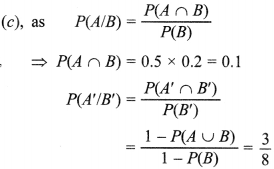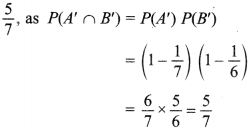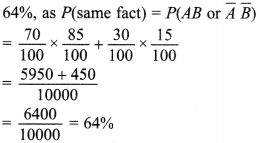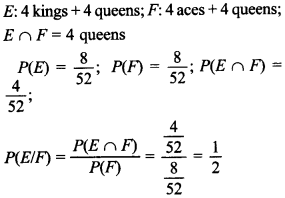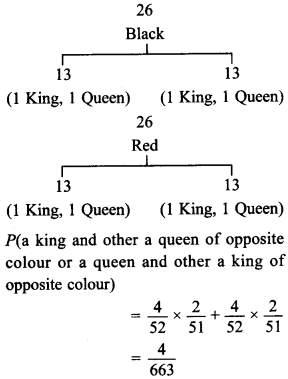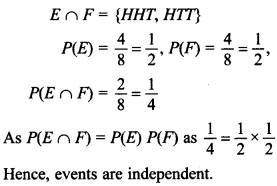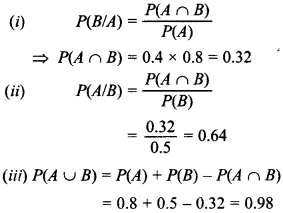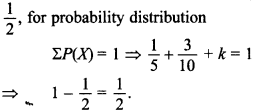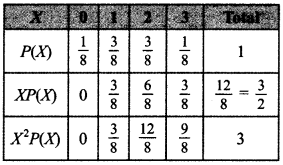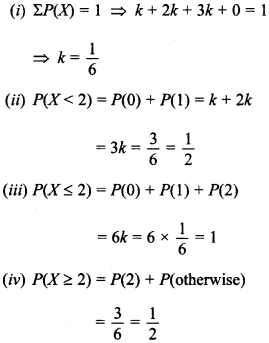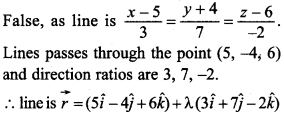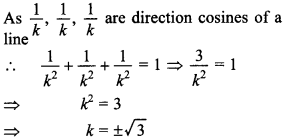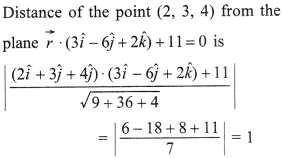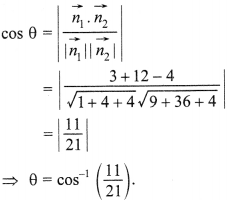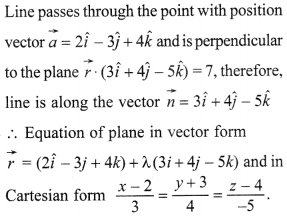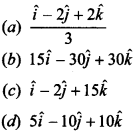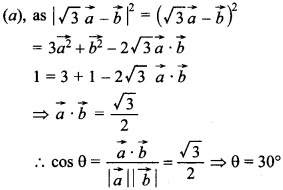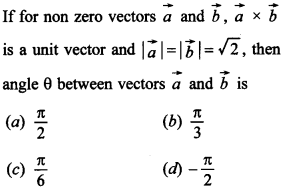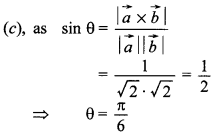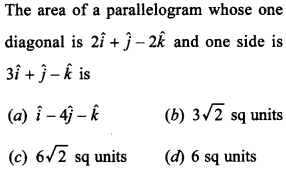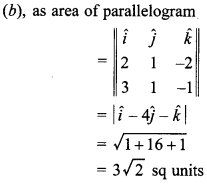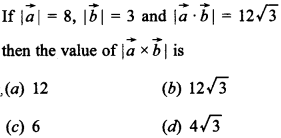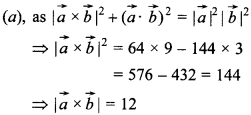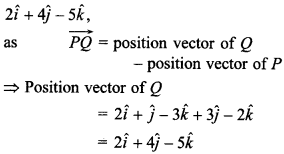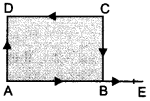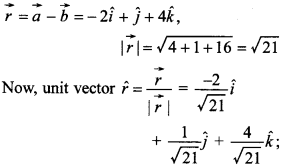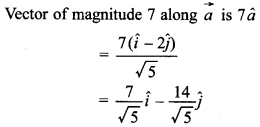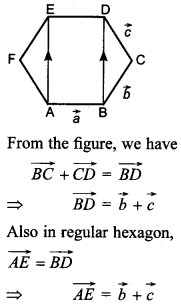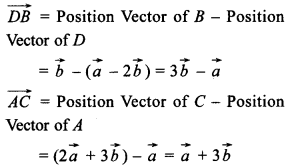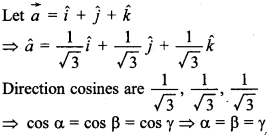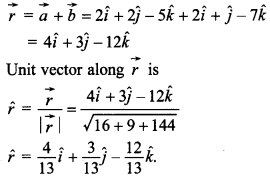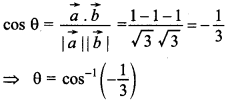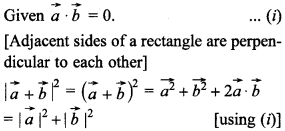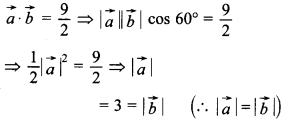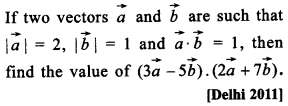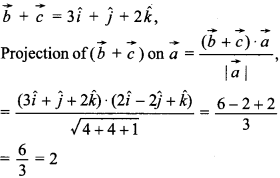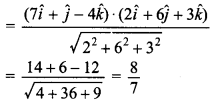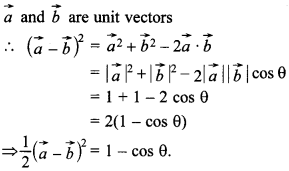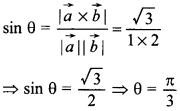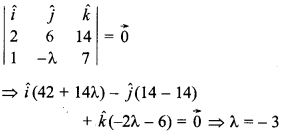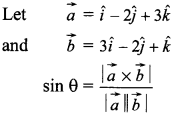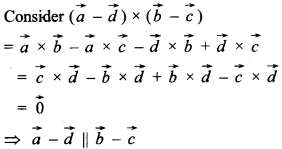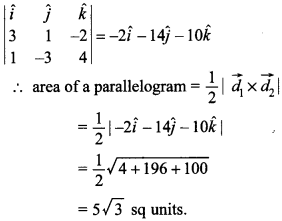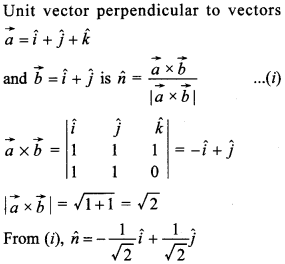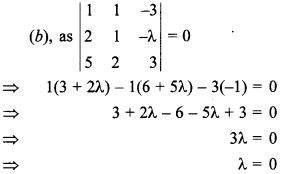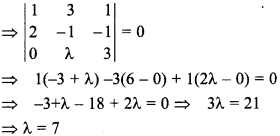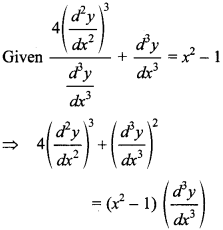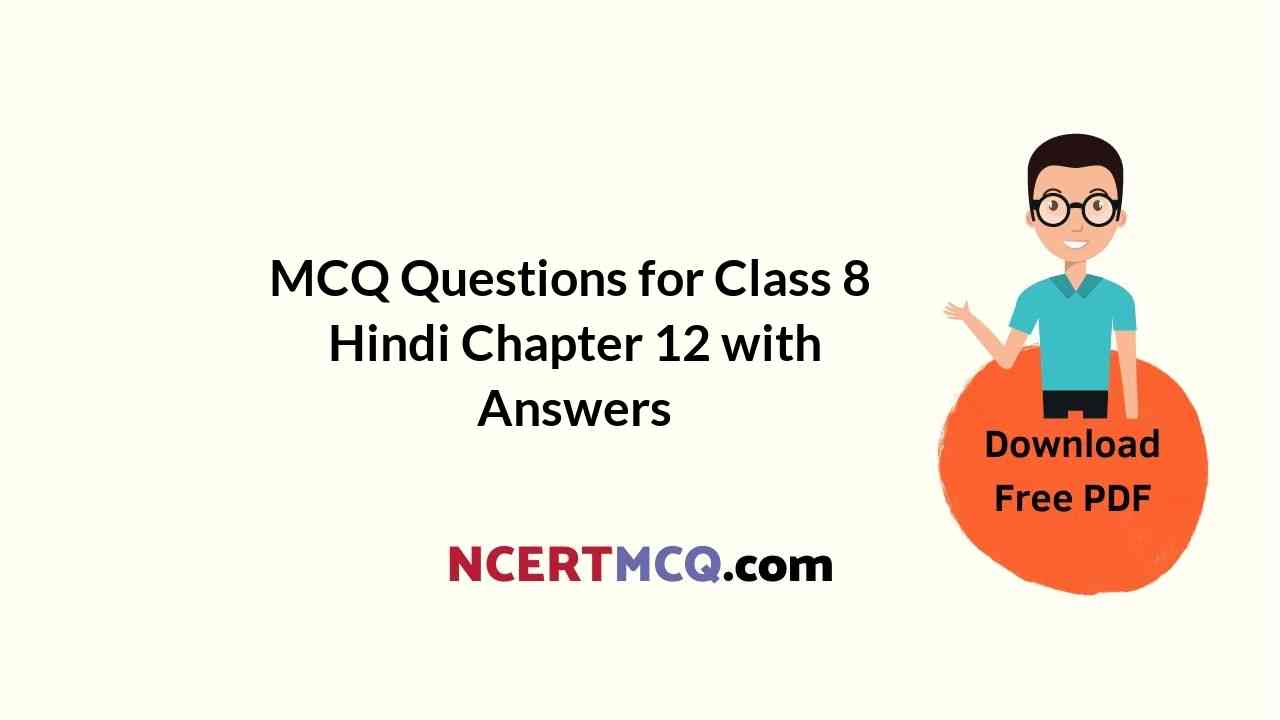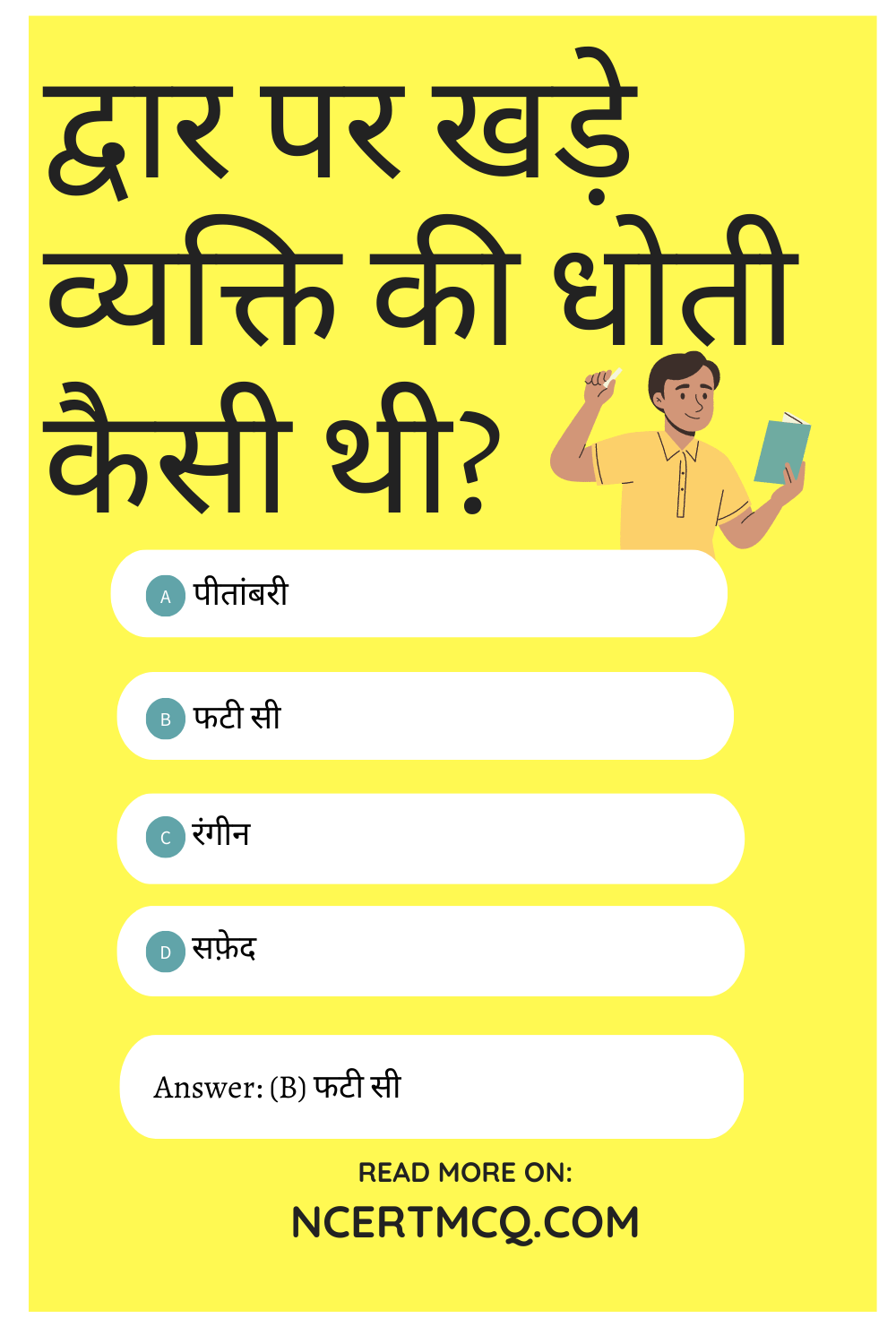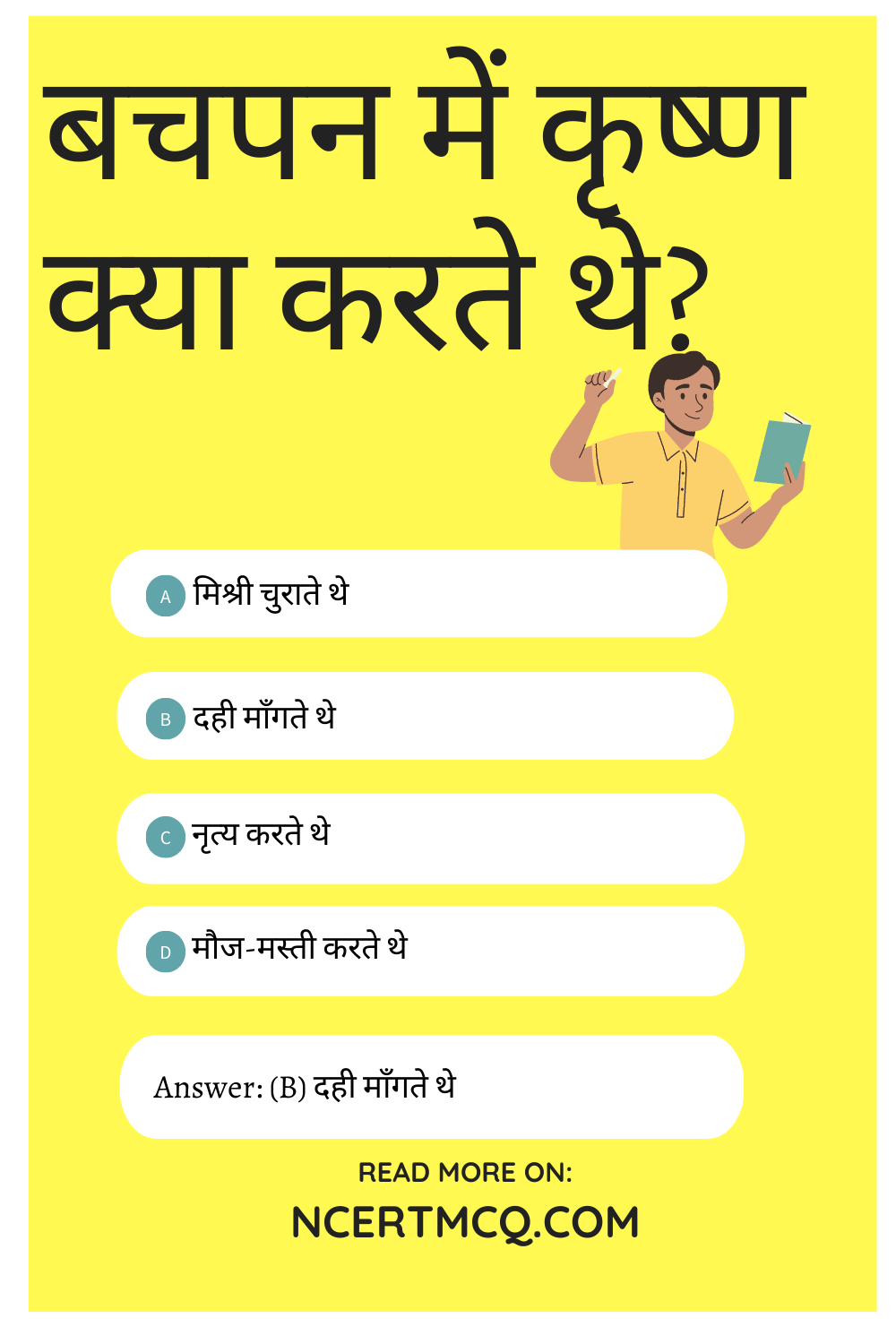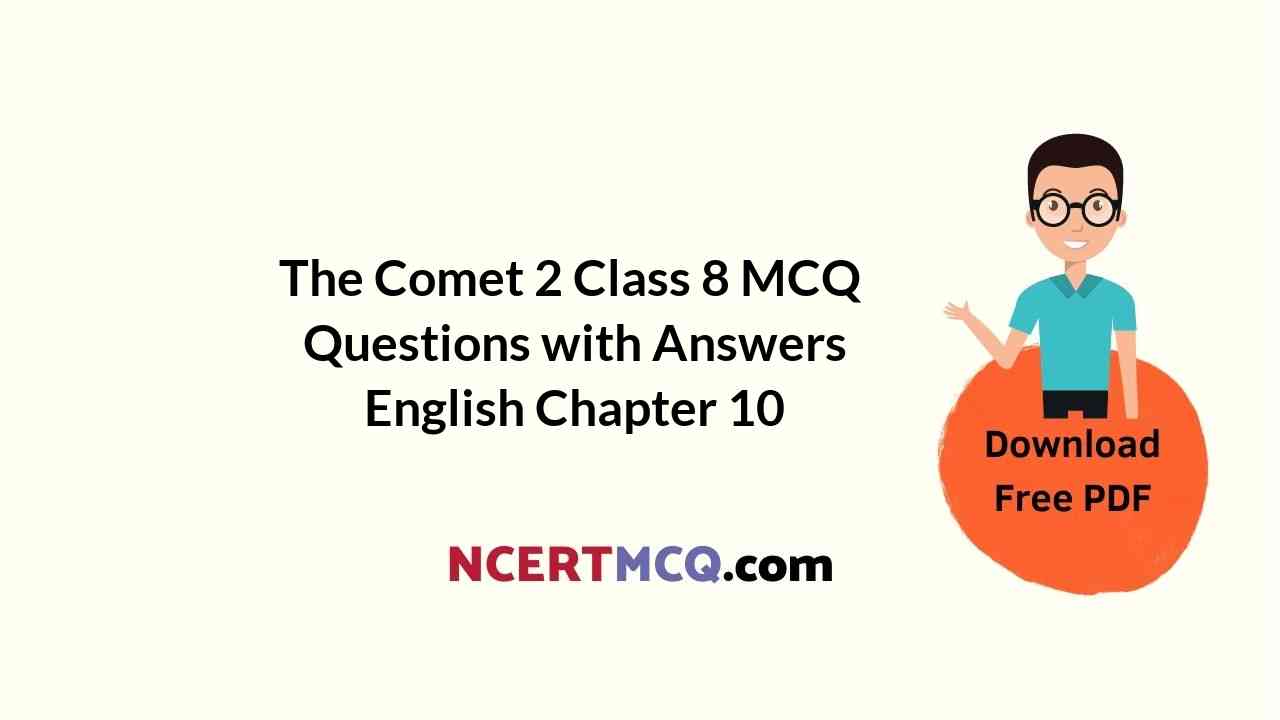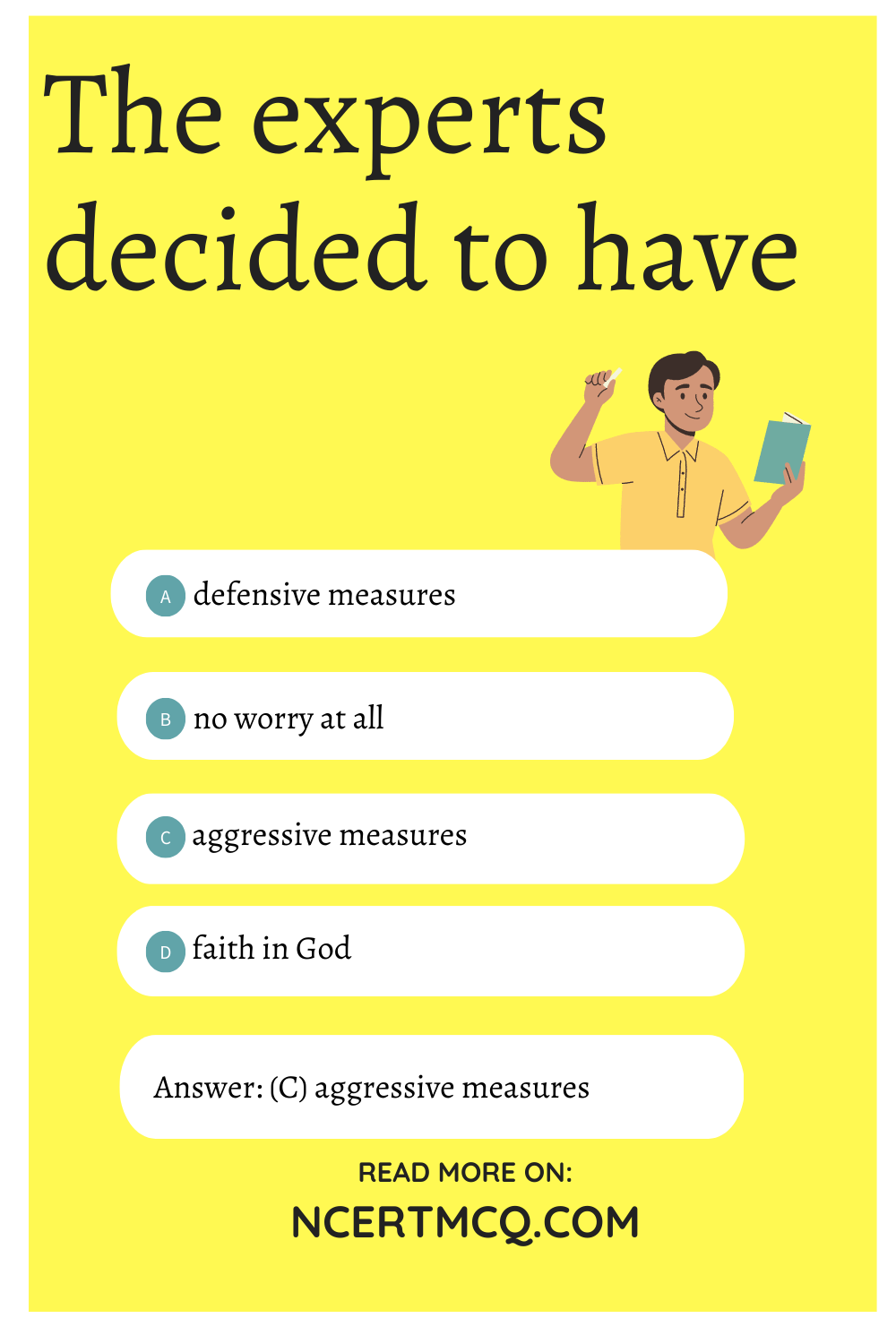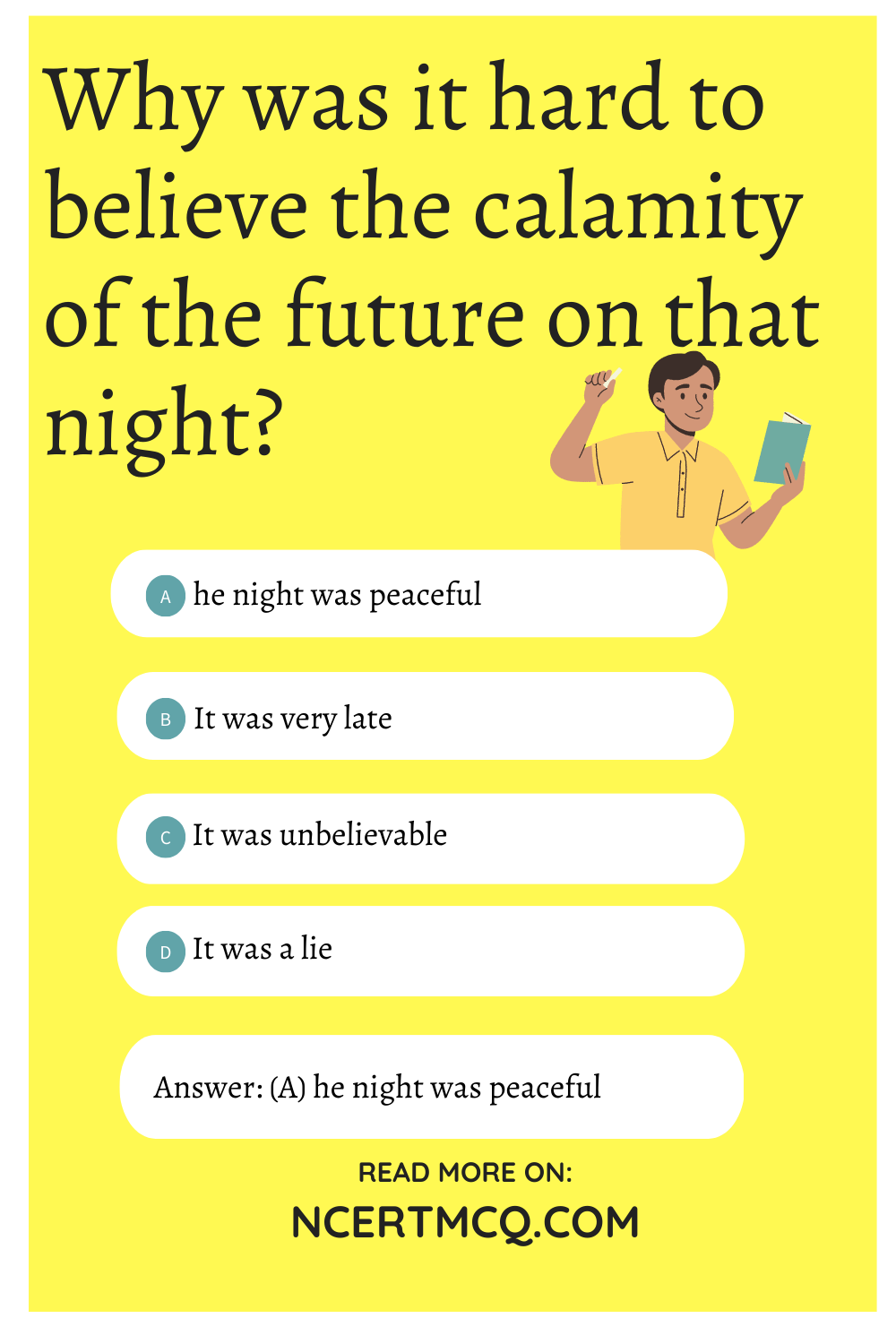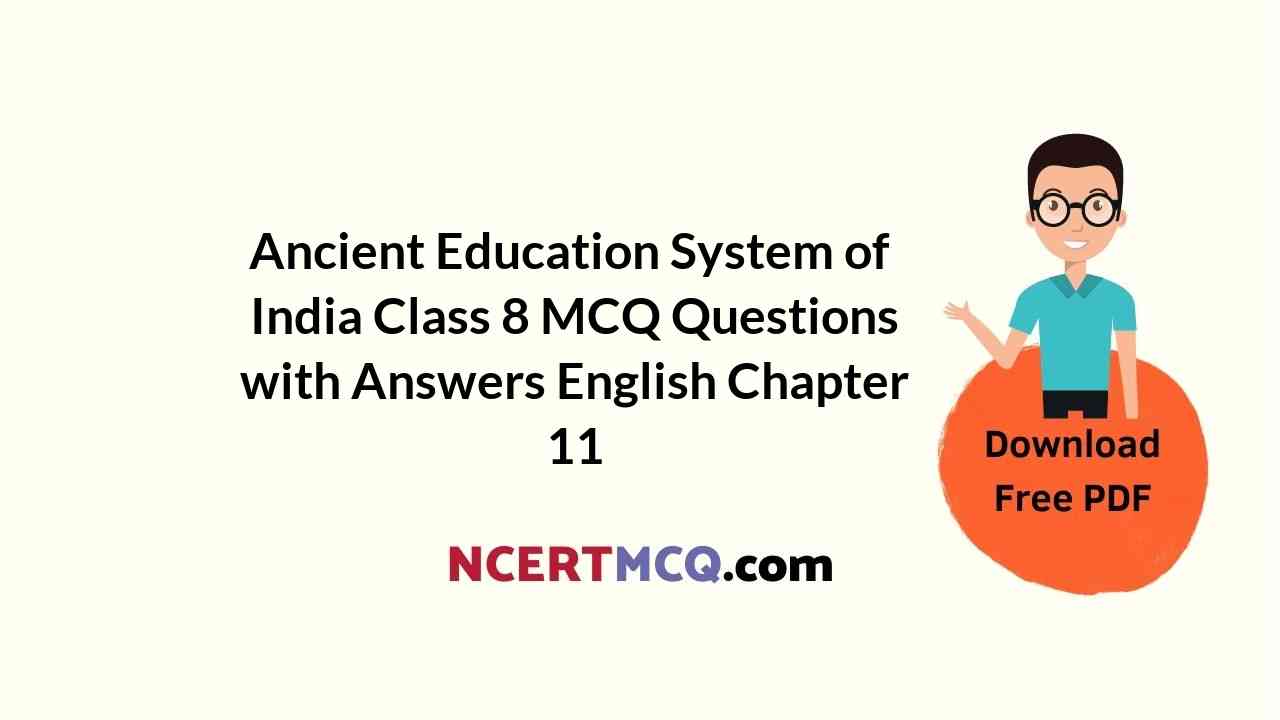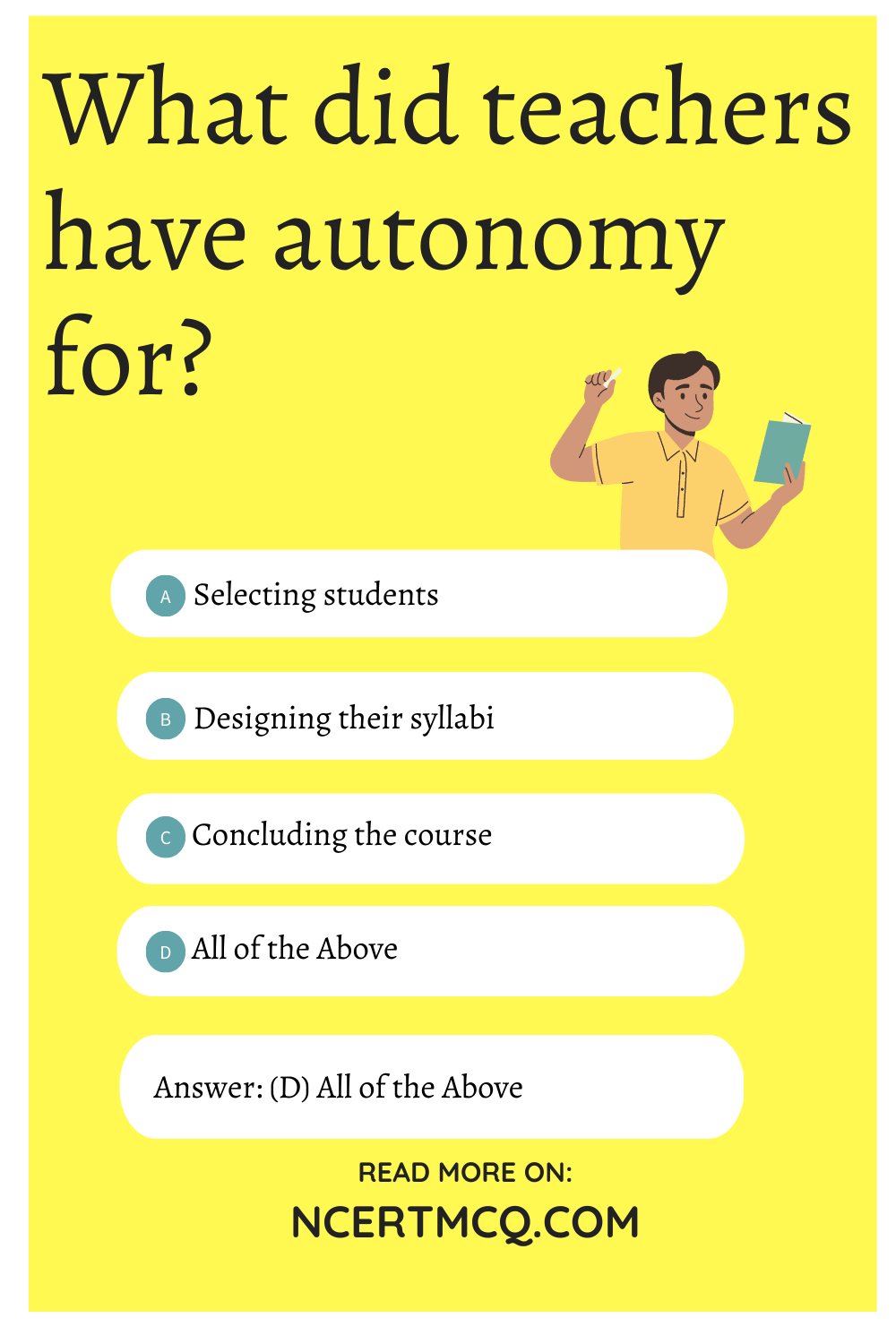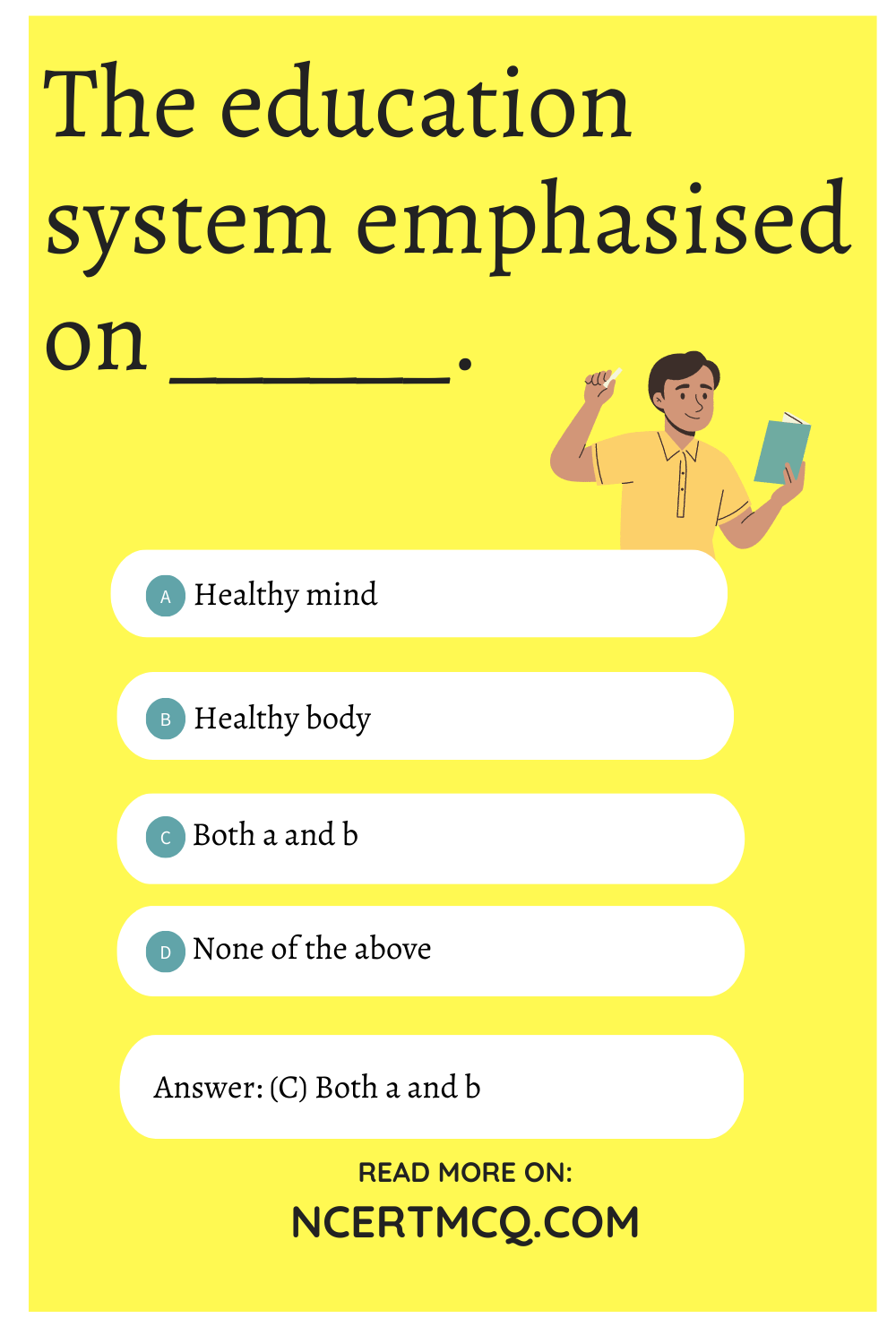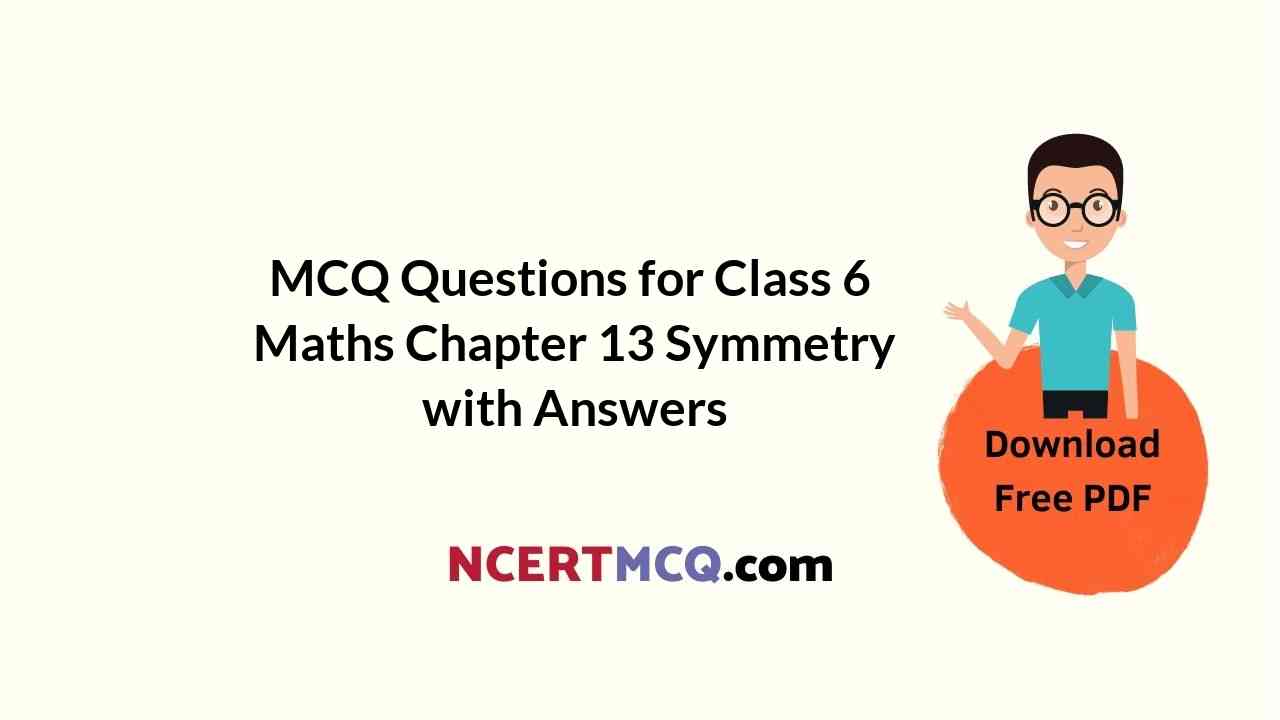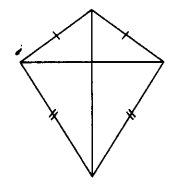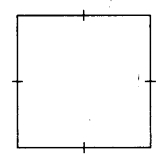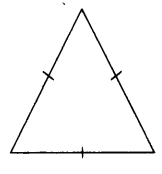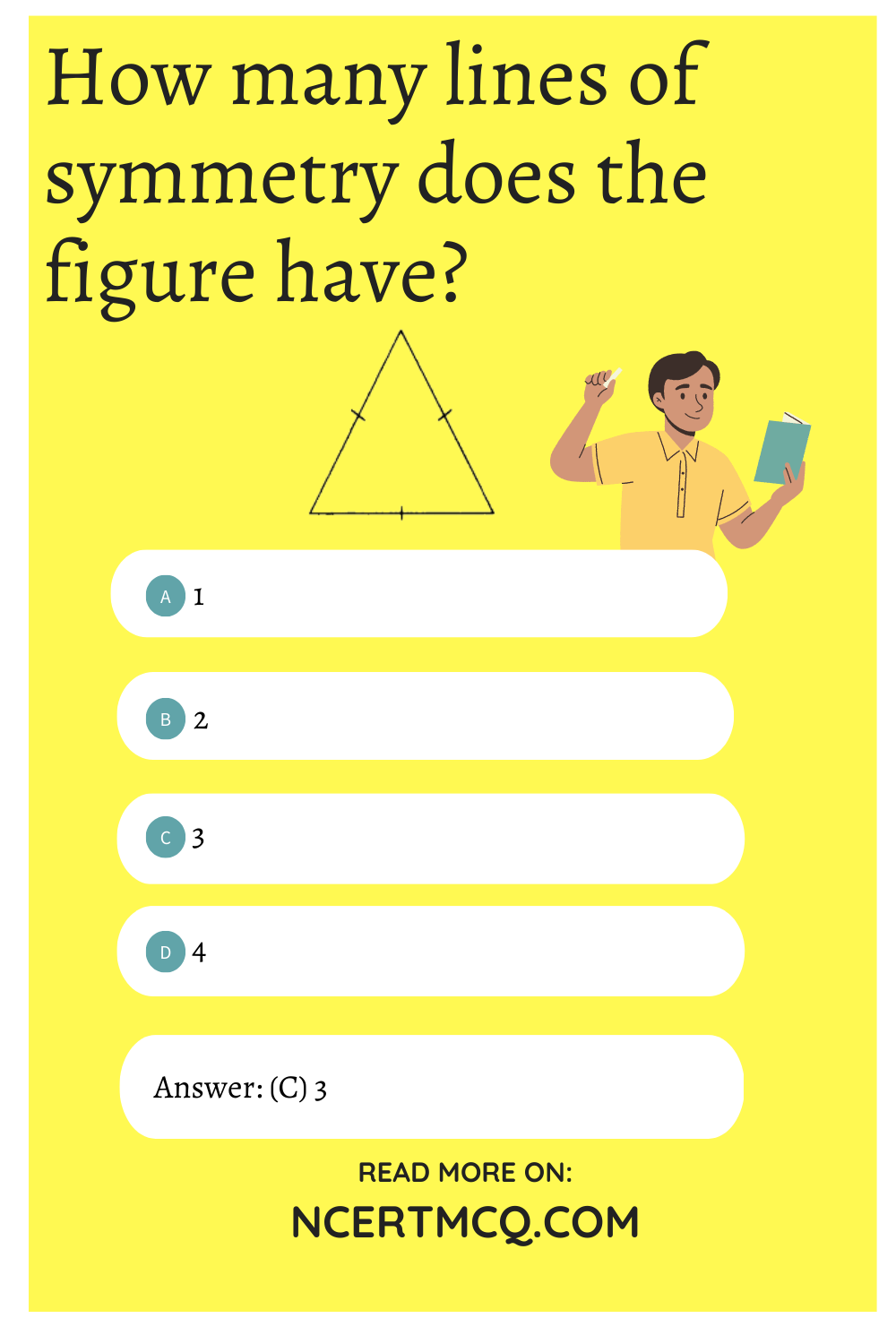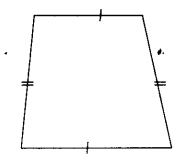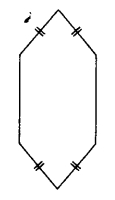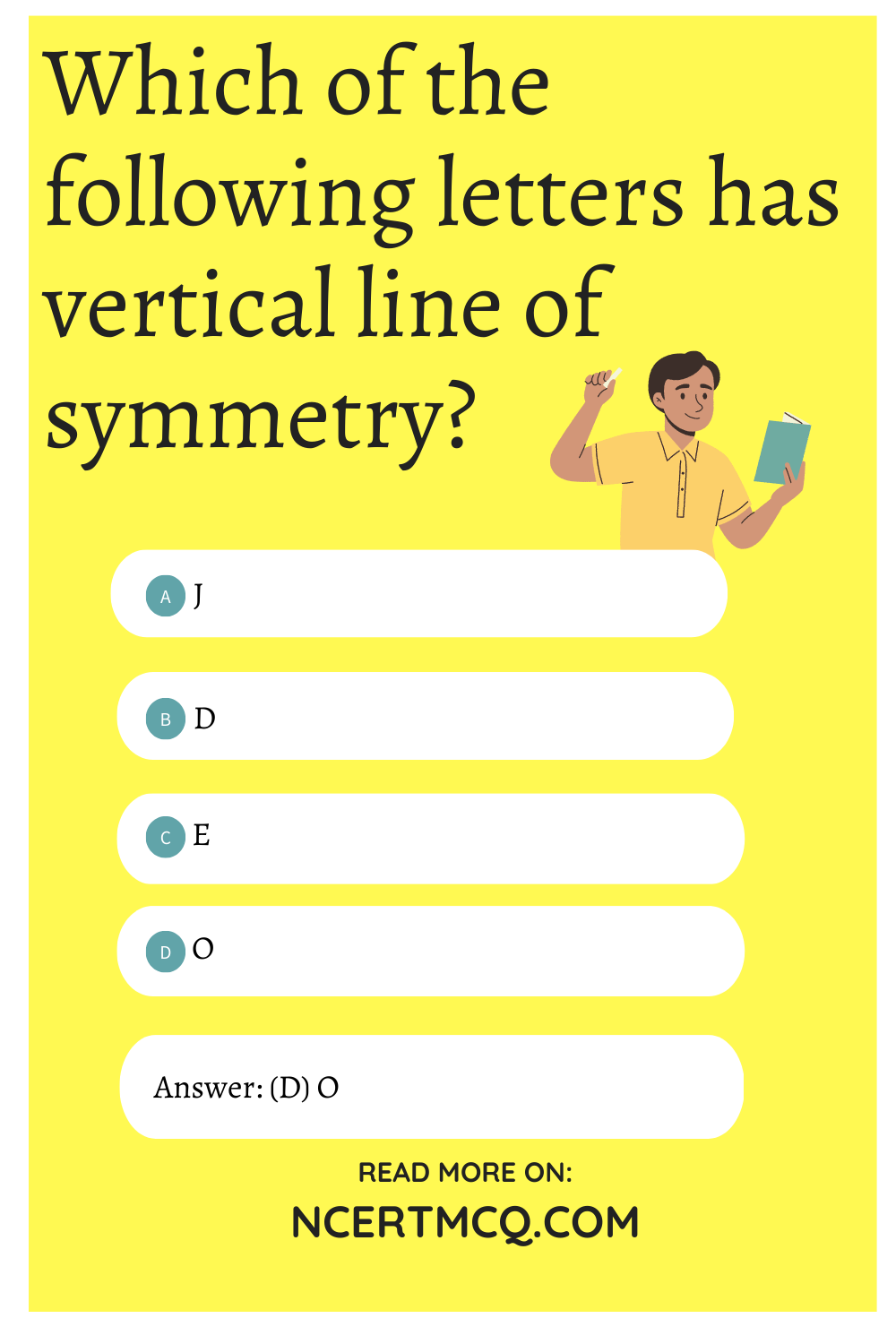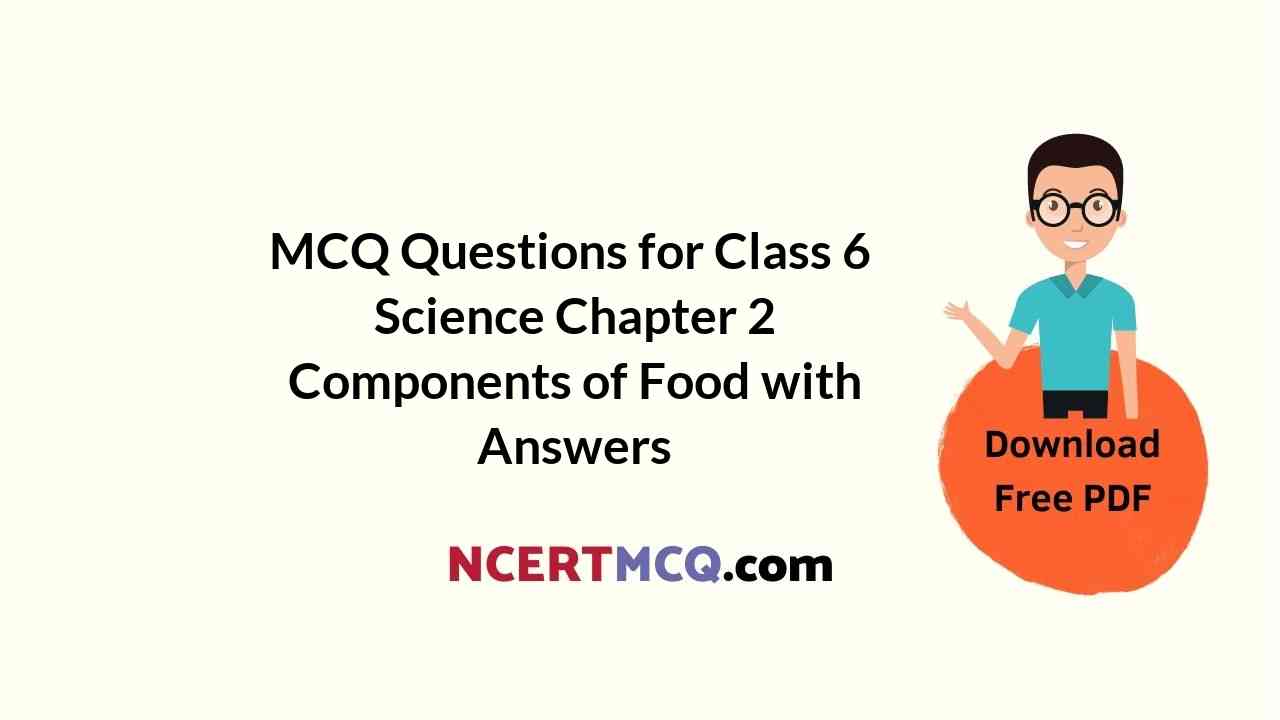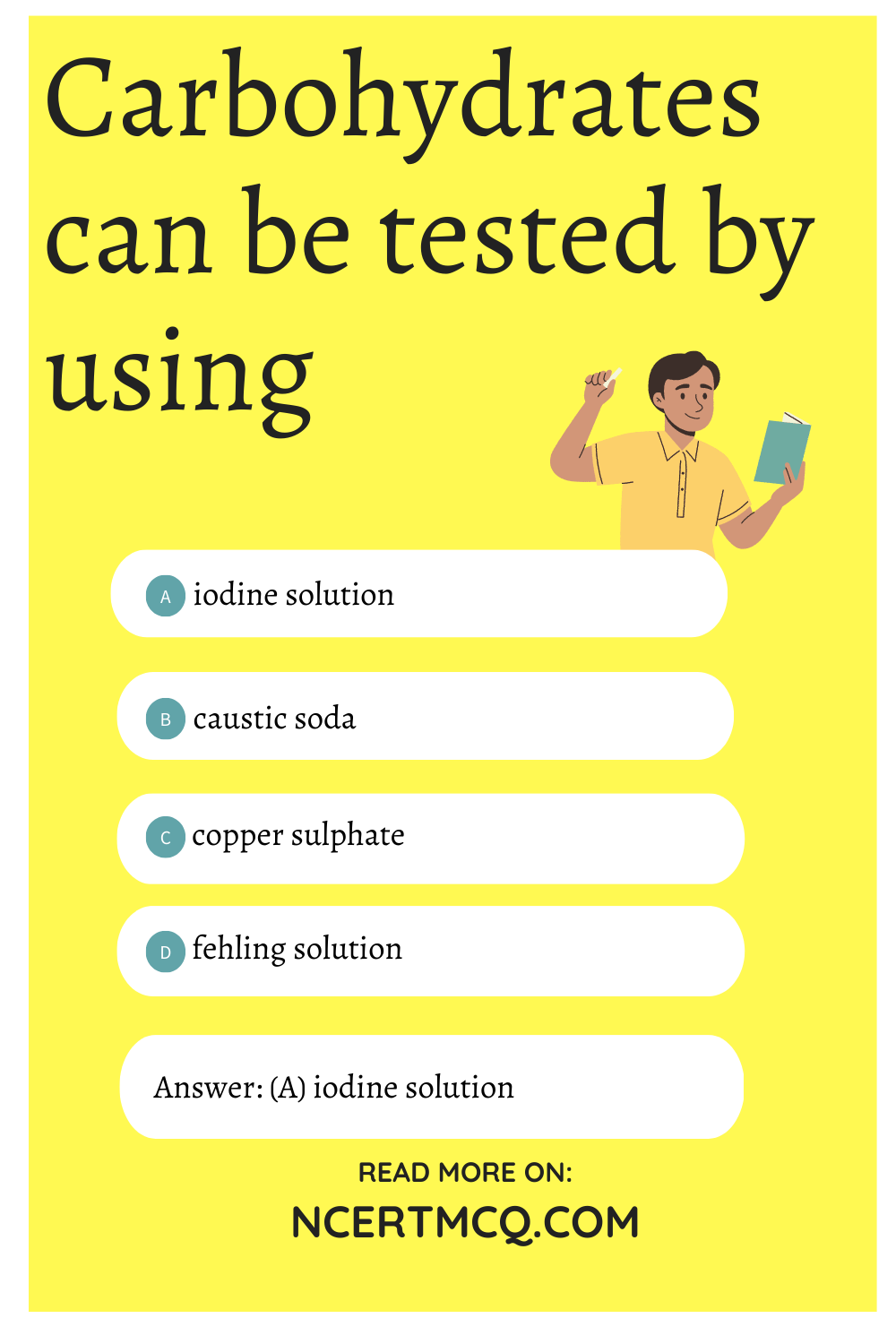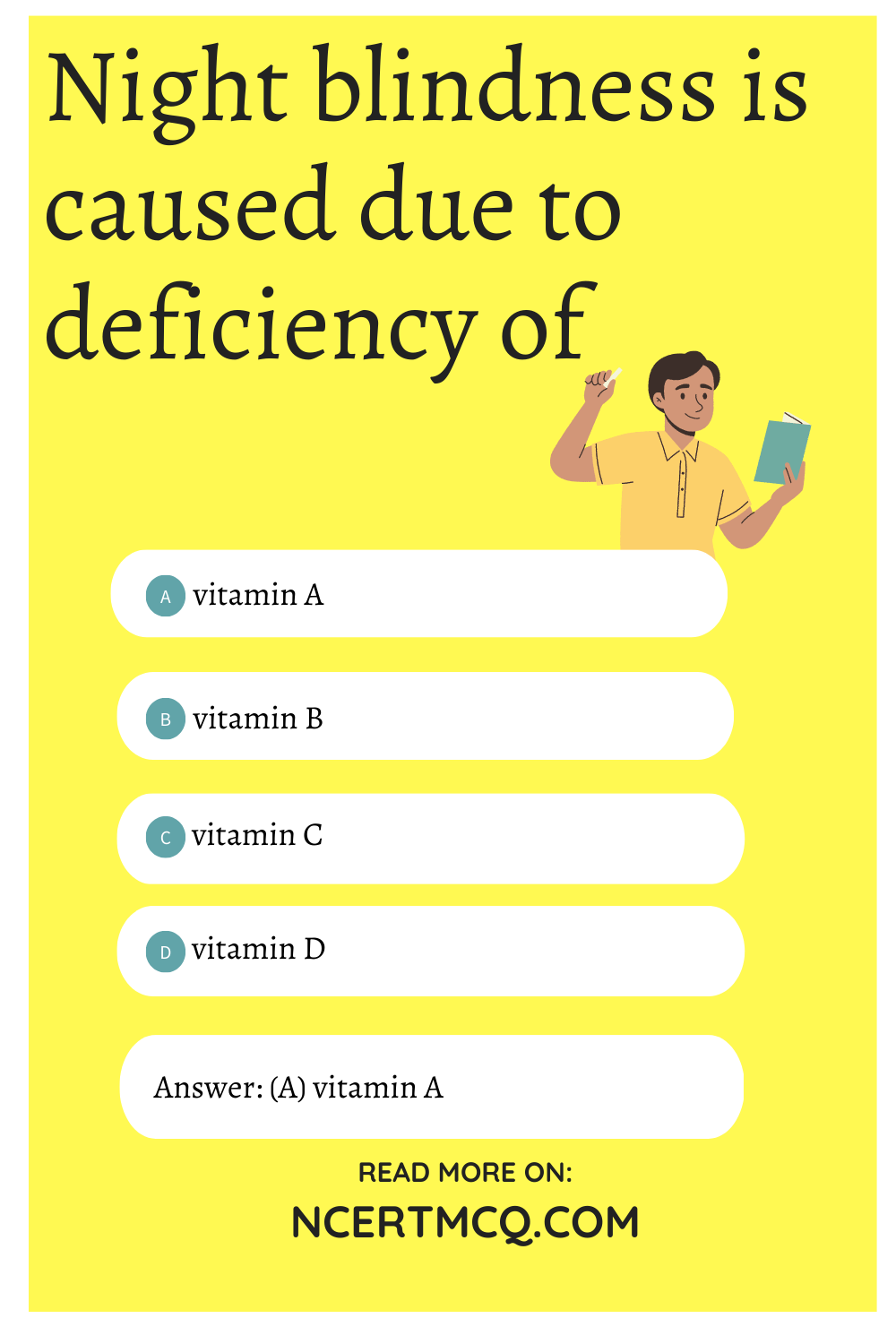Free PDF Download of CBSE Physics Multiple Choice Questions for Class 12 with Answers Chapter 9 Ray Optics and Optical Instruments. Physics MCQs for Class 12 Chapter Wise with Answers PDF Download was Prepared Based on Latest Exam Pattern. Students can solve NCERT Class 12 Physics Ray Optics and Optical Instruments MCQs Pdf with Answers to know their preparation level.
Ray Optics and Optical Instruments Class 12 Physics MCQs Pdf
MCQ on ray optics class 12 Question 1. A converging lens is used to form an image on a screen. When the upper half of the lens is covered by an opaque screen.
(a) half the image will disappear.
(b) incomplete image will be formed.
(c) intensity of image will decrease but complete image is formed.
(d) intensity of image will increase but image is not distinct.
Answer/Explanation
Answer: c
Explaination:
(c) because focal length of lens does not change but amount of light passing through lens becomes half.
2. In optical fibres, the refractive index of the core is
(a) greater than that of the cladding.
(b) equal to that of the cladding.
(c) smaller than that of the cladding.
(d) independent of that of cladding.
Answer/Explanation
Answer: a
Explaination:
(a) R.I. of core is greater than that of the cladding for total internal reflection to occur.
Ray optics MCQ Questions pdf Question 3. An object is placed at a distance of 0.5 m in front of a plane mirror. The distance between object and image will be
(a) 0.25 m
(b) 0.5 m
(c) 1.0 m
(d) 2.0 m
Answer/Explanation
Answer: c
Explaination:
(c) Distance between object and image = 0.5 + 0.5 = 1.0 m
4. Air bubble in water behaves as
(a) sometimes concave, sometimes convex lens
(b) concave lens
(c) convex lens
(d) always refracting surface
Answer/Explanation
Answer: b
Explaination:
(b) Air bubble in water behaves as a concave lens.
MCQ on ray optics class 12 pdf 5. We combine two lenses, one is convex and other is concave having focal lengths /, and f2 and their combined focal length is F. Combination of the lenses will behave like concave lens, if
(a) f1 > f2
(b) f1 = f2
(c) f1 < f2.
(d) f1 ≤ f2
Answer/Explanation
Answer: a
Explaination:
(a) Focal length of the combination \(F=\frac{f_{1} f_{2}}{f_{1}+f_{2}}\), as f2 is negative so denominator f1 + f2 must be positive or f1 > f2.
Optics Multiple choice Questions and Answers pdf Question 6. The length of an astronomical telescope for normal vision (relaxed eye) will be

Answer/Explanation
Answer: d
Explaination:
(d) In normal vision, length of telescope L = f0 + fe
Ray optics MCQ Question 7. The focal length of a biconvex lens of radii of each surface 50 cm and refractive index 1.5, is
(a) 40.4 cm
(b) 75 cm
(c) 50 cm
(d) 80 cm
Answer/Explanation
Answer: c
Explaination:
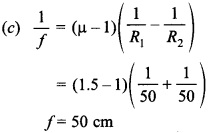
8. A metal coin is at bottom of a beaker filled with a liquid of refractive index = 4/3 to height of 6 cm. To an observer looking from above the surface of liquid, coin will appear at a depth
(a) 1.5 cm
(b) 6.75 cm
(c) 4.5 cm
(d) 7.5 cm
Answer/Explanation
Answer: c
Explaination:

9. Tom’ lenses of focal lengths ± 15 cm and ± 150 cm are available for making a telescope. To produce the largest magnification, the focal length of the eyepiece should be
(a) + 15 cm
(b) + 150 cm
(c) – 150 cm
(d) – 15 cm
Answer/Explanation
Answer:
Explaination:
(a) For telescope magnification,
![]()
to produce large magnification.
10. If a convex lens of focal length 80 cm and a concave lens of focal length 50 cm are combined together, what will be their resulting power?
(a) + 6.5 D
(b) – 6.5 D
(c) + 7.5 D
(d) – 0.75 D
Answer/Explanation
Answer:
Explaination:
(d) Focal length of the combination

Ray optics class 12 Questions and Answers pdf 11. A convex lens and a concave lens, each having the same focal length of 25 cm, are put in contact to form a combination of lenses. The power of the combination (in dioptres) is
(a) zero
(b) 25
(c) 50
(d) infinity
Answer/Explanation
Answer:
Explaination:
![]()
12. The refractive index of the material of an equilateral prism is √3. What is the angle of minimum deviation?
(a) 45°
(b) 60°
(c) 37°
(d) 30°
Answer/Explanation
Answer:
Explaination:
(b) At minimum deviation position,
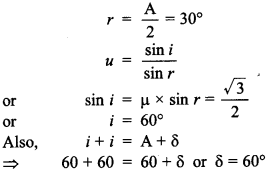
13. In the formation of a rainbow, the light from the sun on water droplets undergoes
(a) dispersion only.
(b) only TIR.
(c) dispersion and TIR.
(d) scattering.
Answer/Explanation
Answer: b
Explaination:
(b) Rainbow is formed due to dispersion of sunlight by raindrops and total internal reflection inside the raindrop.
14. In an experiment to find focal length of a concave mirror, a graph is drawn between the magnitude of u and v. The graph looks like

Answer/Explanation
Answer: c
Explaination: (c) u – v curve is a rectangular parabola.
15. A convex lens of refractive index \(\frac{3}{2}\) has a power of 2.5 D in air. If it is placed in a liquid of refractive index 2 then the new power of the lens is
(a) – 1.25 D
(b) – 1.5 D
(c) 1.25 D
(d) 1.5 D
Answer/Explanation
Answer:
Explaination:

16. A double convex lens of refractive index µ1 is immersed in a liquid of refractive index µ2. The lens will act as transparent plane sheet when
(a) µ1 = µ2
(b) µ1 > µ2
(c) µ1 < µ2
(d) µ1 = \(\frac{1}{\mu_{2}}\)
Answer/Explanation
Answer:
Explaination:

17. When a ray of light enters from one medium to another, then which of the following does not change?
(a) Frequency
(b) Wavelength
(c) Speed
(d) Amplitude
Answer/Explanation
Answer: a
Explaination:
(a) Only frequency of ray of light does not change when it propagates from one medium to another.
18. A diver at a depth 12 m inside water (p = 4/3) sees the sky in a cone of semi-vertical angle

Answer/Explanation
Answer: c
Explaination:
(c) Required semi vertical angle = Critical angle ic

19. The astronomical telescope consists of objective and eyepiece. The focal length of the objective is
(a) equal to that of the eyepiece.
(b) shorter than that of eyepiece.
(c) greater than that of eyepiece.
(d) five times shorter than that of eyepiece.
Answer/Explanation
Answer: c
Explaination: (c) For producing large magnification focal length of objective is greater than that of the eyepiece.
20. A rod of length 10 cm lies along the principal axis of a concave mirror of focal length 10 ’em in such a way that its end closer to the pole is 20 cm away from the mirror. The length of the image is
(a) 10 cm
(b) 15 cm
(c) 2.5 cm
(d) 5 cm
Answer
Answer: d
21. For a total internal reflection, which of the following is correct?
(a) Light travels from rarer to denser medium.
(b) Light travels from denser to rarer medium.
(c) Light travels in air only.
(d) Light travels in water only.
Answer
Answer: b
22. Critical angle of glass is θ2 and that of water is θ2. The critical angle for water and glass surface would be (μg = 3/2, μw = 4/3).
(a) less than θ2
(b) between θ1 and θ2
(c) greater than θ2
(d) less than θ1
Answer
Answer: c
23. Mirage is a phenomenon due to
(a) refraction of light
(b) reflection of light
(c) total internal reflection of light
(d) diffraction of light.
Answer
Answer: c
24. A convex lens is dipped in a liquid whose refractive index is equal to the refractive index of the lens. Then its focal length will
(a) become zero
(b) become infinite
(c) become small, but non-zero
(d) remain unchanged
Answer
Answer: b
25. Which of the following forms a virtual and erect image for all positions of the object?
(a) Concave lens
(b) Concave mirror
(d) Convex mirror
(d) Both (a) and (c)
Answer
Answer: d
26. Two lenses of focal lengths 20 cm and – 40 cm are held in contact. The image of an object at infinity will be formed by the combination at
(a) 10 cm
(b) 20 cm
(c) 40 cm
(d) infinity
Answer
Answer: c
27. Two beams of red and violet color are made to pass separately through a prism (angle of the prism is 60°). In the position of minimum deviation, the angle of refraction will be
(a) 30° for both the colors
(b) greater for the violet color
(c) greater for the red color
(d) equal but not 30° for both the colors
Answer
Answer: a
28. Which of the following colours of white light deviated most when passes through a prism?
(a) Red light
(b) Violet light
(c) Yellow light
(d) Both (a) and (b)
Answer
Answer: b
29. An under-water swimmer cannot see very clearly even in absolutely clear water because of
(a) absorption of light in water
(b) scattering of light in water
(c) reduction of speed of light in water
(d) change in the focal length of eye lens
Answer
Answer: d
30. An astronomical refractive telescope has an objective of focal length 20 m and an eyepiece of focal length 2 cm. Then
(a) the magnification is 1000
(b) the length of the telescope tube is 20.02 m
(c) the image formed of inverted
(d) all of these
Answer
Answer: d
31. An object is immersed in a fluid. In order that the object becomes invisible, it should
(a) behave as a perfect reflector.
(b) absorb all light falling on it.
(c) have refractive index one.
(d) have refractive index exactly matching with that of the surrounding fluid.
Answer
Answer: d
32. A ray of light incident at an angle θ on a refracting face of a prism emerges from the other face normally. If the angle of the prism is 5° and the prism is made of a material of refractive index 1.5, the angle of incidence is [NCERT Exemplar]
(a) 7.5°
(b) 5°
(c) 15°
(d) 2.5°
Answer
Answer: a
33. A short pulse of white light is incident from air to a glass slab at normal incidence. After travelling through the slab, the first colour to emerge is [NCERT Exemplar]
(a) blue
(b) green
(c) violet
(d) red
Answer
Answer: d
34. An object approaches a convergent lens from the left of the lens with a uniform speed 5 m/s and stops at the focus. The image [NCERT Exemplar]
(a) moves away from the lens with an uniform speed 5 m/s.
(b) moves away from the lens with an uniform accleration.
(c) moves away from the lens with a non-uniform acceleration.
(d) moves towards the lens with a non-uniform acceleration.
Answer
Answer: c
35. You are given four sources of light each one providing a light of a single colour – red, blue, green and yellow. Suppose the angle of refraction for a beam of yellow light corresponding to a particular angle of incidence at the interface of two media is 90°. Which of the following statements is correct if the source of yellow light is replaced with that of other lights without changing the angle of incidence? [NCERT Exemplar]
(a) The beam of red light would undergo total internal reflection.
(b) The beam of red light would bend towards normal while it gets refracted through the second medium.
(c) The beam of blue light would undergo total internal reflection.
(d) The beam of green light would bend away from the normal as it gets refracted through the second medium.
Answer
Answer: c
36. The radius of curvature of the curved surface of a plano-convex lens is 20 cm. If the refractive index of the material of the lens be 1.5, it will [NCERT Exemplar]
(a) act as a convex lens only for the objects that lie on its curved side.
(b) act as a concave lens for the objects that lie on its curved side.
(c) act as a convex lens irrespective of the side on which the object lies.
(d) act as a concave lens irrespective of side on which the object lies.
Answer
Answer: c
37. The direction of ray of light incident on a concave mirror is shown by PQ while directions in which the ray would travel after reflection is shown by four rays marked 1, 2, 3 and 4. Which of the four rays correctly shows the direction of reflected ray? [NCERT Exemplar]
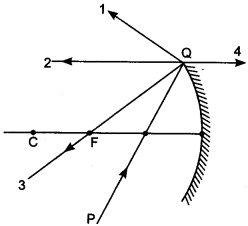
(a) 1
(b) 2
(c) 3
(d) 4
Answer
Answer: b
38. The optical density of turpentine is higher than that of water while its mass density is lower. Figure shows a layer of turpentine floating over water in a container. For which one of the four rays incident on turpentine in figure the path shown is correct? [NCERT Exemplar]
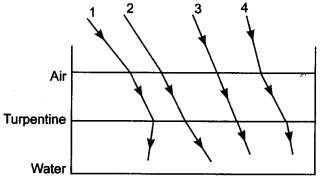
(a) 1
(b) 2
(c) 3
(d) 4
Answer
Answer: b
39. A car is moving with at a constant speed of 60 km h-1 on a straight road. Looking at the rear view mirror, the driver finds that the car following him is at a distance of 100 m and is approaching with a speed of 5 km h-1. In order to keep track of the car in the rear, the driver begins to glance alternatively at the rear and side mirror of his car after every 2 s till the other car overtakes. If the two cars were maintaining their speeds, which of the following statement (s) is/are correct? [NCERT Exemplar]
(a) The speed of the car in the rear is 65 km h-1.
(b) In the side mirror the car in the rear would appear to approach with a speed of 5 km h-1 to the driver of the leading car.
(c) In the rear view mirror the speed of the approaching car would appear to decrease as the distance between the cars decreases.
(d) In the side mirror, the speed of the approaching car would appear to increase as the distance between the cars decreases.
Answer
Answer: d
40. Consider an extended object immersed in water contained in a plane trough. When seen from close to the edge of the trough the object looks distorted. Which of the following is not correct.
(a) the apparent depth of the points close to the edge are nearer the surface of the water compared to the points away from the edge.
(b) the angle subtended by the image of the object at the eye is smaller than the actual angle subtended by the object in air.
(c) some of the points of the object far away from the edge may not be visible because of total internal reflection.
(d) water in a trough acts as a lens and magnifies the object.
Answer
Answer: d
41. A magnifying glass is used, as the object to be viewed can be brought closer to the eye than the normal near point. This results in
(a) a larger angle to be subtended by the object at the eye and hence viewed in greater detail.
(b) the formation of a real inverted image.
(c) increase in the field of view.
(d) infinite magnification at the near point.
Answer
Answer: a
42. An astronomical refractive telescope has an objective of focal length 20 m and an eyepiece of focal length 2 cm. Which one of the following is not correct?
(a) The length of the telescope tube is 20.02 m.
(b) The magnification is 1000.
(c) The image formed is inverted.
(d) An objective of a larger aperture will increase the brightness and reduce chromatic aberration of the image.
Answer
Answer: d
43. Virtual image formed by convex mirror has magnification _________ .
Answer/Explanation
Answer:
Explaination: negative
44. Optical denseness of a medium is measured in terms of _________ .
Answer/Explanation
Answer:
Explaination: refractive index
45. Minimum angle of incidence in the denser medium for which angle of refraction becomes 90° is called _________ .
Answer/Explanation
Answer:
Explaination: critical angle
46. Relation between critical angle and refractive index is _________ .
Answer/Explanation
Answer:
Explaination: \(\mu=\frac{1}{\sin i_{c}}\)
47. Optical fibre works on the principle of
Answer/Explanation
Answer:
Explaination: Total internal reflection
48. The splitting of white light into its constituent colours when it passes through a glass prism is called _________ .
Answer/Explanation
Answer:
Explaination: dispersion
49. Blue colour of sky is due to phenomenon of _________ of sunlight.
Answer/Explanation
Answer:
Explaination: scattering
50. A ray of monochromatic light passes from medium (1) to medium (2). If the angle of incidence in medium (1) is θ and the corresponding angle of refraction in medium (2) is θ/2, which of the two media is optically denser? Give reason. [Foreign 2013]
Answer/Explanation
Answer:
Explaination:
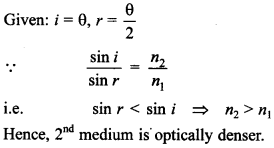
51. For the same value of angle of incidence, the angles of refraction in three media A, B and C are 15°, 25° and 35° respectively. In which medium would the velocity of light be minimum? [AI2012]
Answer/Explanation
Answer:
Explaination:
![]()
Thus, the medium for which angle of refraction is of 15°, the speed of light is minimum.
52. A concave lens of refractive index 1.5 is immersed in a medium of refractive index 1.65. What is the nature of the lens? [Delhi 2015]
Answer/Explanation
Answer:
Explaination: The nature of the lens is converging.
53. A lens behaves as a converging lens in air and a diverging lens in water (μ = 4/3). What will be the condition on the value of refractive index (μ) of the material of the lens? [Delhi 2011C]
Answer/Explanation
Answer:
Explaination:
The refractive index p of the lens is less than the refractive index of water, i.e. \(\frac{4}{3}\) > μL > 1.
54. An air bubble is formed inside water. Does it act as a converging lens or a diverging lens? [DoE]
Answer/Explanation
Answer:
Explaination: An air bubble behaves as a diverging lens inside the water.
55. The image of an object formed by a lens on the screen is not in sharp focus. Suggest a method to get the clear focussing of the image on the screen without disturbing the position of the object, the lens or the screen.
Answer/Explanation
Answer:
Explaination:
The image of an object formed by a lens can be brought to a sharp focus on a unfixed screen by changing the focal length of the lens by any of the following methods:
(i) By placing another lens of suitable focal length in contact with the previous lens.
(ii) By immersing the given lens in a liquid of appropriate refractive index.
56. Can absolute value of refractive index of a medium be less than unity?
Answer/Explanation
Answer:
Explaination:
As the speed of light is maximum in vacuum, therefore absolute value of refractive index cannot be less than unity as it is given by the relation n = \(\frac{c}{v}\).
57. For which material the value of refractive index is (i) minimum and (ii) maximum?
Answer/Explanation
Answer:
Explaination:
(i) Refractive index is minimum for vacuum (μ = 1).
(ii) Refractive index is maximum for diamond.
58. Can virtual image be photographed?
Answer/Explanation
Answer:
Explaination:
Yes, because the lens in the camera produces a real image of the virtual image being formed.
59. How does the angle of minimum deviation of a glass prism vary, if the incident violet light is replaced with red light? [Chennai 2019, AI 2017]
Answer/Explanation
Answer:
Explaination: It decreases.
60. An object is first seen in red light and then in violet light through a simple microscope. In which case is the magnifying power larger?
Answer/Explanation
Answer:
Explaination:
As we know m = 1 + \(\frac{D}{f}\)
∵ fV < fR
So, the magnifying power is larger when the object is seen in violet light.
61. Name the phenomenon due to which one cannot see through the fog. [DoE]
Answer/Explanation
Answer:
Explaination: Due to scattering of light, one cannot see through the fog.
62. How does the angle of minimum deviation of a glass prism of refractive index 1.5 change, if it is immersed in a liquid of refractive index 1.3?
Answer/Explanation
Answer:
Explaination: It will decrease.
63. A convex lens is placed in contact with a plane mirror. A point object at a distance of 20 cm on the axis of this combination has its image coinciding with itself. What is the focal length of the lens? [Delhi 2014]
Answer/Explanation
Answer:
Explaination: The focal length of convex lens is 20 cm.
64. If an object is moved from infinity to convex mirror, then in which direction will the image shift?
Answer/Explanation
Answer:
Explaination: The image will shift from focus to the convex mirror.
65. A green light is incident from water to the air-water interface at the critical angle (θ). Which part of the spectrum will come out in the air medium?
Answer/Explanation
Answer:
Explaination: The spectrum of visible light whose frequency is less than that of green light will come out of the water into the air.
66. How do the increasing (i) wavelength and (ii) intensity of light affect the speed of light in glass?
Answer/Explanation
Answer:
Explaination:
(i) ∵ v ∝ λ; ∴ speed of light increases on increasing the wavelength in glass.
(ii) There is no effect on speed of light on changing the intensity.
67. Name the principle on which an optical fibre works.
Answer/Explanation
Answer:
Explaination: Total internal reflection.
68. Why is there no dispersion in the light refracted through a rectangular glass slab?
Answer/Explanation
Answer:
Explaination:
A glass slab can be considered as two glass prisms placed together and the position of one prism is inverted w.r.t. another. Therefore, the various colours of white light dispersed by the first prism are again combined to form white light.
69. The line AB in the ray diagram represents a lens. State whether the lens is convex or concave.
Answer/Explanation
Answer:
Explaination:
It is a diverging (concave lens) and the refracted rays are bending away from the principal axis.
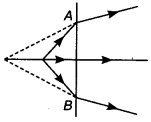
70. A ray of light incident on one of the faces of a glass prism of angle A has angle of incidence 2A. The refracted ray in the prism strikes the opposite face which is silvered, the reflected ray from it retracing its path. Trace the ray diagram and find the relation between the refractive index of the material of the prism and the angle of the prism.
Answer/Explanation
Answer:
Explaination:
Given: i = 2 A, r = 90° – (90° – A) = A
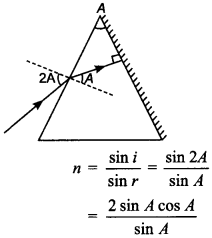
∴ n = 2 cos A
71. Does the magnifying power of a microscope depend on the colour of the light used? Justify your answer. [Foreign 2017]
Answer/Explanation
Answer:
Explaination:
Magnifying power of a microscope,

Since the focal length of a convex lens depends on the refractive index, and refractive indices for different colours are different, so according to the lens maker’s formula

The magnifying power of a microscope depends on the colour of the light used.
We hope the given Physics MCQs for Class 12 with Answers Chapter 9 Ray Optics and Optical Instruments will help you. If you have any query regarding CBSE Class 12 Physics Ray Optics and Optical Instruments MCQs Pdf, drop a comment below and we will get back to you at the earliest.

